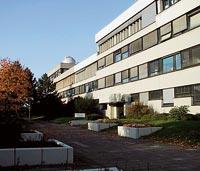From Nazism there is also something to learn

The German association Max Planck has investigated the attitude of scientists during Nazism. For this association the internal research has been similar, since the research has focused on the activities of scientists of the association Kaiser Wilhelm, of which Max Planck is heir.
The attitude of the nationalist regime to science and scientists has been described quite simply: there were scientists who conformed to the regime and who, mercilessly, conducted painful and violent research, rather than science, than pseudoscience, but most scientists worked under threat. In addition, it was considered that basic research was not important, and that only research with practical results were supported, referring to racial differences or more lethal weapons manufacturing techniques, for example.

But in reality, the relationship between the regime and scientists was much more complex. It seems that the Nazis took into account basic research and the researchers were not obliged to belong to the Party. Many researchers did work according to the objectives of the regime, but they were not obligated, but opted for them voluntarily, because they were paid more, and because it opened up a world of research, for example, to use resources from invaded countries.

In addition, research carried out in concentration camps, horror, in many of them the scientific method was rigorously applied, using cutting-edge knowledge. In view of the results of
the research, Max Planck has recognized that some scientists of the association worked without ethical traces and that many worked for the regime. They also apologize to the victims who suffered these investigations and managed to survive. And they wanted to emphasize that to advance sometimes you have to look back, that from the evil you can learn.





